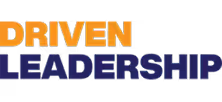Female Leadership Training in Seattle, WA


Female Leadership Training in Seattle, WA
Seattle women in leadership roles face unique opportunities and obstacles. Whether you are an emerging manager at a tech startup, a midlevel director in a nonprofit, or an executive navigating a large enterprise, tailored female leadership training in Seattle can accelerate promotions, expand influence, and close persistent pay and opportunity gaps. These programs focus on practical skill-building—negotiating influence, confidence and presence, mentorship and sponsorship, and addressing workplace barriers—delivered in formats that fit Seattle’s professional rhythms.
Why targeted female leadership training matters in Seattle
Seattle’s economy is concentrated in technology, healthcare, higher education, and nonprofits. That creates high-demand leadership roles but also intense competition and structural barriers for women:
- Underrepresentation in C-suite and board roles at local companies and startups
- Persistent compensation and promotion gaps, especially in STEM and engineering teams
- Imposter syndrome and confidence gaps among women moving into broader roles
- Subtle biases and microaggressions in cross-functional, fast-paced environments
A focused program built for women addresses these structural and personal factors together, turning leadership development into measurable career movement.
Common female leadership challenges we address
- Difficulty negotiating promotion and compensation on equal terms with peers
- Lack of formal sponsorship or access to influential networks
- Hesitancy to claim visibility or advocate for strategic projects
- Managing up and lateral influence in matrixed organizations
- Recovering credibility and presence after career interruptions or role changes
What a Seattle-focused female leadership program covers
Programs are designed to be immediately applicable to the local market and your role. Core learning modules include:
- Negotiating Influence and Compensation: concrete frameworks and negotiation labs for salary, title, and resourcing conversations tailored to Seattle market benchmarks.
- Confidence and Executive Presence: voice, body language, and message framing practice relevant to virtual and in-person leadership settings.
- Mentorship and Sponsorship Building: strategies to secure sponsors, convert mentors into advocates, and build reciprocal mentor networks.
- Addressing Workplace Barriers: tools to identify and respond to bias, microaggressions, and structural blockers without derailing relationships.
- Strategic Stakeholder Influence: mapping influence, coalition-building, and persuasive communication for cross-functional initiatives.
- Career Path Planning and Board Readiness: portfolio development, governance basics, and visibility planning for senior transitions.
- Network Activation and Community Building: cohort-based networking, alumni groups, and industry-specific connectors for Seattle’s sectors.
Program formats and delivery tailored for Seattle professionals
Recognizing Seattle’s mix of remote work, compressed schedules, and preference for experiential learning, programs typically offer:
- Cohort-based in-person intensives (weekend or multi-day) for immersive practice and rapid behavior change
- Hybrid cohorts combining live virtual sessions through an online academy with periodic in-person labs and networking events
- Executive coaching and mentorship circles for one-on-one skill application and accountability
- On-site team sessions for organizations wanting to develop pipelines of women leaders internally
- Negotiation labs and role-play simulations to practice high-stakes conversations in a safe environment
Cohort sizes and schedules are optimized for peer learning and sustained confidentiality—small enough for deep feedback, large enough for diverse perspectives.
How progress is diagnosed and measured
Effective female leadership training begins with diagnostics and ends with demonstrated behavior change:
- Baseline assessment: 360 feedback, leadership self-assessments, and competency mapping to identify gaps.
- Individual development plans: clear, timebound goals linking learning to promotions, project ownership, or compensation improvements.
- Applied projects: real work assignments that build visibility and deliver business results while practicing new skills.
- Ongoing measurement: follow-up 360s, KPI tracking (promotion rates, retention, project outcomes), and qualitative progress reporting.
- Accountability structures: coach check-ins, peer accountability groups, and sponsor commitments to ensure transfer of learning.
Practical outcomes and ROI you can expect
Organizations and participants typically see measurable returns when programs are well-integrated with career pathways:
- Higher success rates in promotion and salary negotiations for program graduates
- Increased proportion of women in cross-functional leadership roles and senior teams
- Stronger stakeholder relationships and faster project approvals due to improved influence skills
- Reduced turnover as leaders feel supported and visible in career progression
- Deeper, more diverse leadership pipelines improving organizational performance
Outcomes are tied to follow-through: small weekly practices and sponsor activation often deliver disproportionate effects on career trajectory.
Networking, mentorship, and community in Seattle
A major value of female leadership cohorts is the network. Programs build:
- Cross-industry cohorts connecting tech, healthcare, nonprofits, and higher education leaders
- Mentor-sponsor matching with experienced executives in the Seattle market
- Alumni networks and micro-communities for continuous peer support and role-specific problem solving
- Local industry events and panels to increase visibility with hiring managers and boards
These relationships are particularly valuable in Seattle’s interconnected professional ecosystem.
Maintaining momentum after the program
Sustained growth requires ongoing practice and structures:
- Establish a weekly practice routine for negotiation, feedback, and public speaking rehearsals
- Keep sponsor and mentor relationships active with scheduled progress updates and project asks
- Continue peer accountability through monthly cohorts or mastermind groups
- Use micro-coaching sprints for targeted challenges during promotion cycles or role transitions
Small, consistent actions preserve gains and translate training into long-term career advancement.
Female leadership training in Seattle is not about one-off inspiration. It is about building a repeatable process that increases influence, closes gaps, and identifies tactical steps to reach senior roles. For women ready to move from capability to career impact, a tailored program blends assessment, experiential practice, mentorship, and measurable outcomes designed for Seattle’s competitive landscape.

